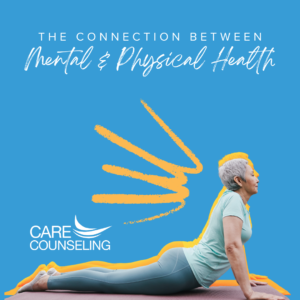Unlocking the Power of Holistic Health
 The mind and body are intrinsically linked, with each exerting a profound influence on the other. The connection between mental and physical health is a powerful dynamic that shapes our overall well-being. In this blog post, we will explore the intricate relationship between the mind and body, highlighting the impact of psychological factors on physical well-being. Additionally, we will delve into the transformative role of practices such as meditation and yoga in promoting holistic health.
The mind and body are intrinsically linked, with each exerting a profound influence on the other. The connection between mental and physical health is a powerful dynamic that shapes our overall well-being. In this blog post, we will explore the intricate relationship between the mind and body, highlighting the impact of psychological factors on physical well-being. Additionally, we will delve into the transformative role of practices such as meditation and yoga in promoting holistic health.
The mind and body constantly interact and influence one another. Our mental state, emotions, and thoughts can have significant implications for our physical health. For instance, stress, anxiety, and depression can manifest as physical symptoms such as headaches, muscle tension, and compromised immune function. Conversely, physical ailments or chronic conditions can impact our mental and emotional well-being. Recognizing this mind-body connection is crucial for achieving and maintaining holistic health.
Psychological factors play a vital role in physical well-being. Research has shown that chronic stress can contribute to the development or exacerbation of various health conditions, including cardiovascular diseases, gastrointestinal issues, and immune disorders. Moreover, negative emotions and psychological distress can weaken the immune system, impair sleep quality, and hinder the body’s ability to heal. On the other hand, positive emotions, such as joy and gratitude, have been linked to enhanced immune function and improved overall health outcomes.
Meditation, an ancient practice with roots in various spiritual traditions, has gained recognition for its profound impact on holistic health. Regular meditation has been shown to reduce stress levels, alleviate anxiety and depression, and enhance emotional well-being. By calming the mind and promoting present-moment awareness, meditation cultivates a state of relaxation and equanimity, positively influencing physical health. It can lower blood pressure, boost immune function, and reduce inflammation. Additionally, meditation improves sleep quality, enhances cognitive function, and fosters resilience in the face of life’s challenges. Incorporating meditation into our daily routine empowers us to harness the mind-body connection and nurture our overall well-being.
Yoga, an ancient practice originating from India, combines physical postures (asanas), breath control (pranayama), and meditation to promote harmony between the mind and body. Beyond its physical benefits, yoga has profound psychological impacts. The intentional movements and focused breathing patterns in yoga activate the relaxation response, reducing stress and anxiety. Regular practice enhances self-awareness and cultivates a sense of mindfulness, allowing practitioners to tune into their body’s needs and nurture a positive relationship with it. Additionally, yoga has been found to improve mood, increase resilience, and foster a positive body image. By embracing the mind-body connection through yoga, individuals can experience holistic health and discover a deeper connection to themselves and the world around them.
The mind-body connection is a fundamental aspect of our well-being, highlighting the intricate interplay between our mental and physical health. Recognizing the influence of psychological factors on physical well-being empowers us to prioritize our mental health and engage in practices that promote holistic health. Incorporating meditation and yoga into our daily lives allows us to tap into the transformative power of the mind-body connection, fostering relaxation, emotional well-being, and resilience. By nurturing this connection, we embark on a journey of self-discovery, balance, and overall vitality that extends beyond the boundaries of our physical body.



























